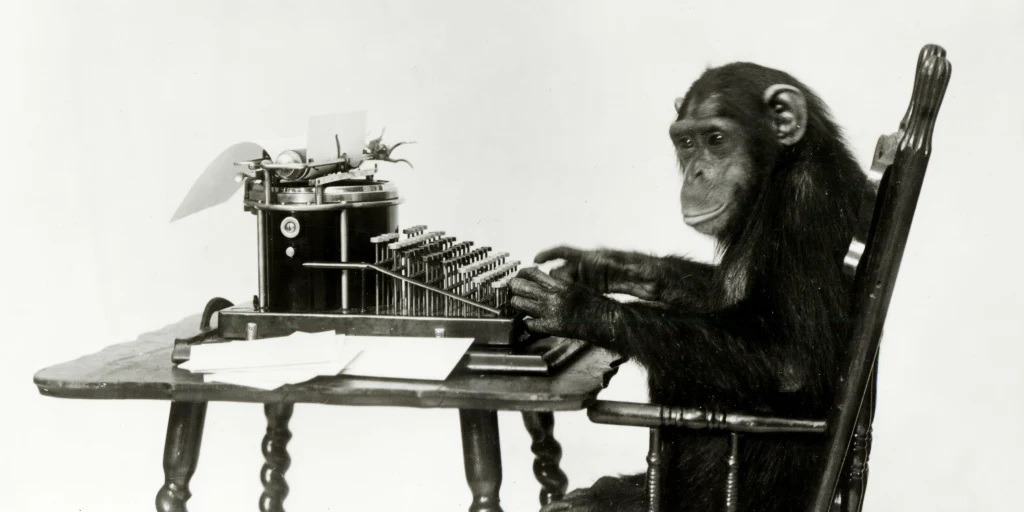
The “infinite monkey theorem” is a famous thought experiment suggesting that, given infinite time, a monkey typing randomly on a keyboard could eventually produce any text, even something as intricate as Shakespeare’s complete works. This concept is often used to demonstrate the sheer power of probability and randomness, illustrating how, over an unbounded span, chance events can lead to extraordinary outcomes. The theorem has permeated popular culture, with references in everything from The Simpsons to The Hitchhiker’s Guide to the Galaxy, sparking both amusement and curiosity over its implications.
However, a recent study led by mathematicians Stephen Woodcock and Jay Falletta at the University of Technology Sydney (UTS) challenges this theorem by bringing it into the context of a finite universe. Their research explores whether, within the universe’s estimated lifespan, monkeys could realistically produce complex texts through random typing. “The infinite monkey theorem assumes either infinite time or infinite monkeys,” Woodcock explains. “We decided to look at the probability that a given sequence of letters would be produced by a finite number of monkeys within the universe’s lifespan.” By considering finite limits, the study grounds this theoretical notion in tangible reality.
For their calculations, Woodcock and Falletta simulated a scenario with a 30-key keyboard (incorporating letters and basic punctuation) and assumed a typing rate of one keystroke per second. They applied these conditions to both a single “monkey” and the global population of around 200,000 chimpanzees. The results showed that a single chimpanzee would have about a 5% chance of typing the word “bananas” within its lifetime. However, even with all 200,000 chimpanzees typing simultaneously, the probability of reproducing Shakespeare’s entire body of work—approximately 884,647 words—remains virtually nonexistent. Their calculations estimate the chances of this happening within the universe’s projected lifetime, around 10^100 years (a 1 followed by 100 zeros), as astronomically low.
The findings emphasize the astronomical improbability of randomness producing structured literary works within our universe’s finite timeline. The researchers’ conclusion is clear: even with more monkeys or faster typing, achieving anything as complex as Shakespeare’s works purely through random keystrokes is beyond practical reach, reaffirming that this thought experiment remains confined to theory, not practice.




